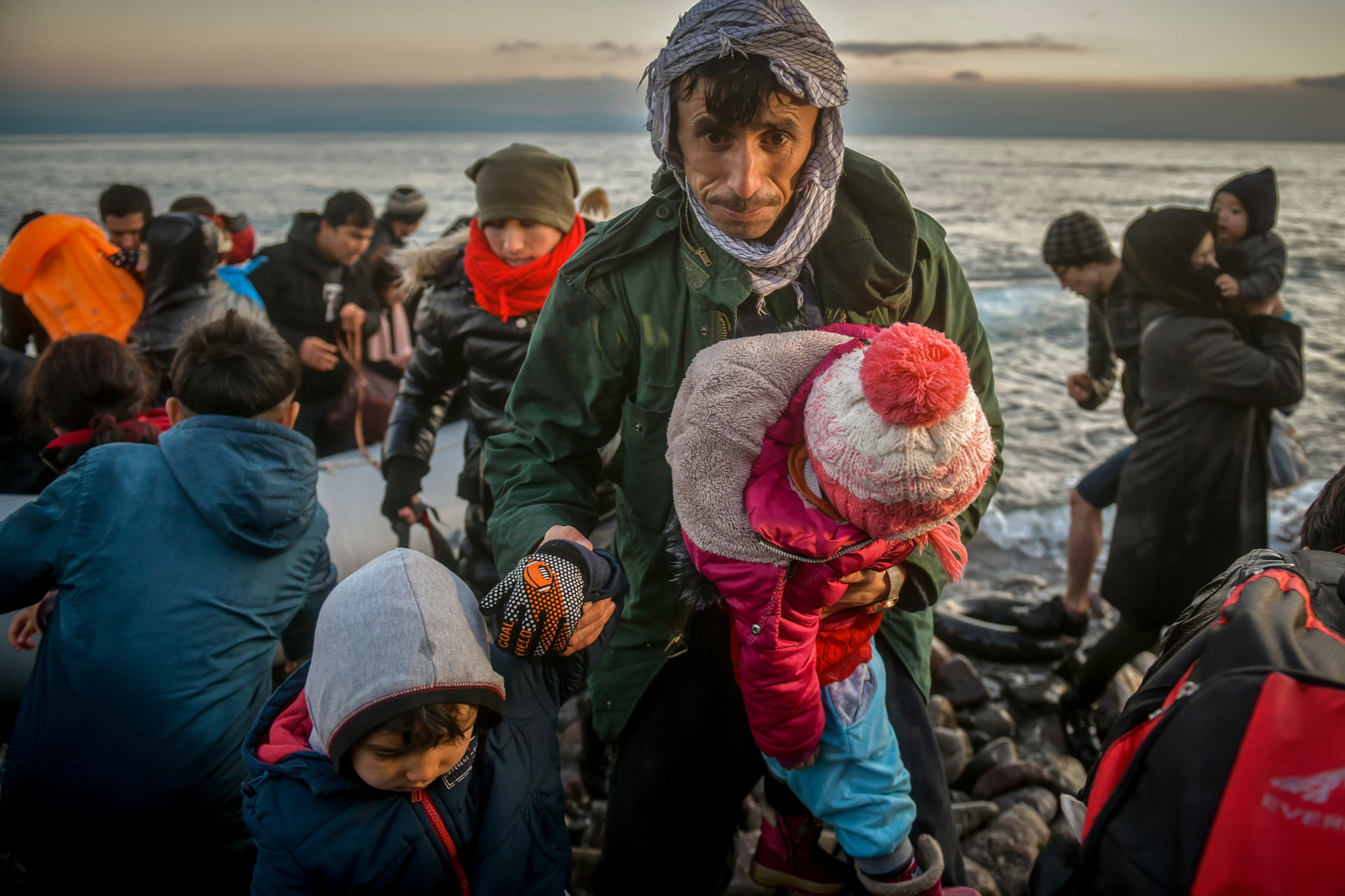
Violent pushbacks of migrants at Greek borders – Where is Europe?
24 September, 2020
Violent pushbacks of migrants from Greece to Turkey are rising
On 1 March 2020, Greece suspended the right to seek asylum. Additionally, they announced that they would increase border security to prevent the entry of migrants, and summarily deport the ones entering illegally into Greek territory. Following this moment, numerous cases of collective expulsions[1] from Greece to Turkey, and systematic violations of human rights against migrants and asylum seekers have been reported.
Reports of violent pushbacks of migrants from Greece to Turkey are not new. Over the past four years, several reports routinely documented episodes of such treatment and occurrence. However, in the last months, the number of pushbacks has been rising and new tactics to prevent entry and enforce the return of migrants, who have already reached the Greek land or sea, have been reported. These alleged incidents have been documented by media sources, many of which were supported by reports from non-governmental organizations and direct testimonies.
The civil nonprofit organization Legal Centre Lesvos documented recurrent practices used by Greek authorities during collective expulsions in the Aegean Sea, as they were reported by survivors. According to this report, when intercepting migrants arriving on land, Greek authorities transferred them to unofficial detention sites before carrying out collective expulsion at sea. By intercepting them at sea, Greek authorities refuse to assist them, or oftentimes even damaging their boats. In other occasions, migrants are transferred on the authorities’ vessels, usually with the assurance of being transferred to Greece. When on board, they are subject to physical violence, and even deprived from their belongings, including cell phones, identity documents, money and personal possessions. They are then forced to return to their previously damaged, often now motor less boats, or to go on life rafts, and left in open water.
The situation urges the intervention of the European Commission together with the Greek Government
Greece has the legitimate right to control its borders and manage irregular migration. However, its controls and practices must respect international human rights and refugee protection standards. Pushbacks are prohibited by Greek and EU law, as well as international treaties and agreements. Among them, the Geneva Convention on Refugees guarantees the right to seek protection, and the European Convention on Human Rights prohibits collective expulsions. Further, those actions violate the principle of non-refoulement, a core principle of international human rights law that prohibits states from returning migrants to countries where they would face torture, cruel, inhuman or degrading treatment and other irreparable harm.
These allegations must be investigated, and if illegal actions did indeed take place, prosecution should follow. As stated by Human Rights Watch, Greek judicial authorities should conduct a transparent and impartial investigation into those allegations that Greek Coast Guard and Greek police personnel are accused of. Any officer engaged in illegal acts, as well as their commanding officers, should be subject to disciplinary sanctions and, if applicable, criminal prosecution.
Putting a stop to those incidents should be a priority not only for the Greek Government but also for the European Commission. Seeing as the Commission provides financial support to the Greek Government for migration control, it should ensure that its funding does not contribute to violations of fundamental human rights and EU laws. Moreover, it should open legal proceedings against Greece for violating Article 4 of Protocol No. 4 to the European Convention of Human Rights, which prohibits collective expulsions.
Pushing in this direction, on July 6, the Members of the European Parliament (MEPs) in the Civil Liberties Committee asked the Greek Government to clarify its position regarding those reports and testimonies. The Greek Minister for Citizen Protection, Michalis Chrisochoidis, and Minister for Migration and Asylum, Notis Mitarachi, dismissed the accusations, describing them as “fake news”. Nonetheless, the majority of the MEPs claimed that the Commission should fully investigate those allegations and impose the appropriate sanctions if the breaches are confirmed. The European Commissioner for Home Affairs, Ylva Johansson, agreed that those incidents should be investigated and indicated that the Commission may consider a new system to monitor and verify reports of pushbacks. “We cannot protect our borders by violating people’s rights”, she said.
Conclusion
Covid-19 is putting great pressure on countries and has increased the challenges that governments are facing worldwide. However, as affirmed by Simon Campbell from the Border Violence Monitoring Network, it should not give Greek authorities a blank cheque to perform illegal pushbacks and act with more impunity. Everyone seeking international protection has a right to apply for asylum and should be given that opportunity. Returns should follow a procedure that provides access to effective remedies and safeguards against refoulement. Those concerns have recently been addressed by the European Commission in the New Pact on Migration and Asylum, released on September 23. The plan envisages, among other proposals, the establishment of a new independent monitoring mechanism aimed at ensuring that pushbacks do not occur at the borders. This could represent an important step to ensure that the human rights of refugees and asylum seekers are respected in Europe.
[1] “Collective expulsion” = any measure compelling aliens, as a group, to leave a country, except where such a measure is taken on the basis of a reasonable and objective examination of the particular case of each individual alien of the group.